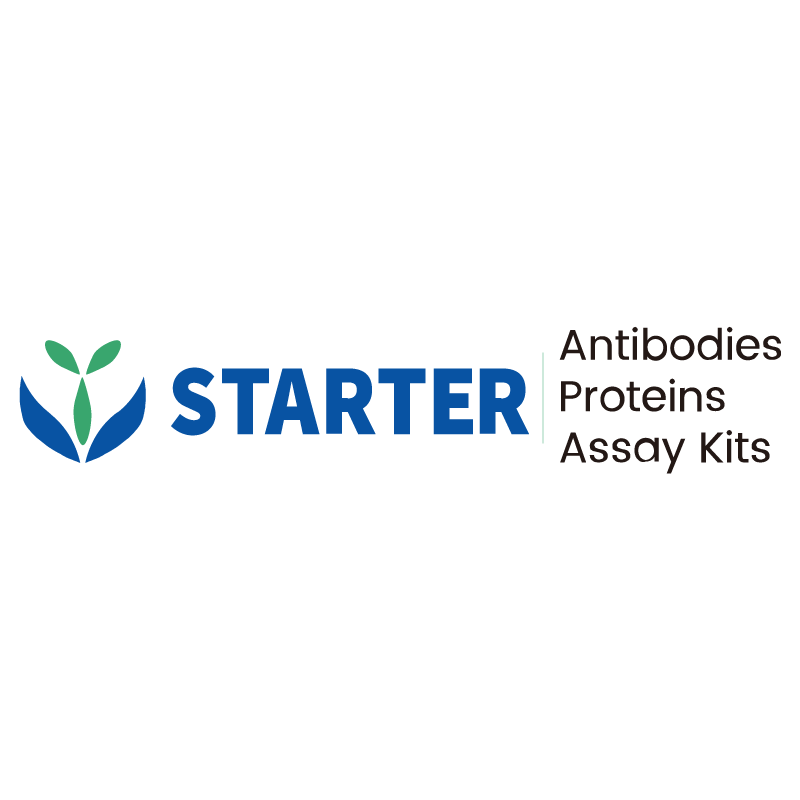WB result of 14-3-3 theta Rabbit pAb
Primary antibody: 14-3-3 theta Rabbit pAb at 1/1000 dilution
Lane 1: HeLa whole cell lysate 20 µg
Lane 2: A549 whole cell lysate 20 µg
Secondary antibody: Goat Anti-rabbit IgG, (H+L), HRP conjugated at 1/10000 dilution
Predicted MW: 28 kDa
Observed MW: 25 kDa
Product Details
Product Details
Product Specification
| Host | Rabbit |
| Synonyms | 14-3-3 protein T-cell, 14-3-3 protein tau, Protein HS1, YWHAQ |
| Immunogen | Synthetic Peptide |
| Location | Cytoplasm |
| Accession | P27348 |
| Antibody Type | Polyclonal antibody |
| Isotype | IgG |
| Application | WB |
| Reactivity | Hu, Ms, Rt |
| Purification | Immunogen Affinity |
| Concentration | 0.5 mg/ml |
| Conjugation | Unconjugated |
| Physical Appearance | Liquid |
| Storage Buffer | PBS, 40% Glycerol, 0.05% BSA, 0.03% Proclin 300 |
| Stability & Storage | 12 months from date of receipt / reconstitution, -20 °C as supplied |
Dilution
| application | dilution | species |
| WB | 1:1000 |
Background
14-3-3 theta protein is a subtype within the 14-3-3 protein family, a group of acidic proteins widely expressed in eukaryotic organisms. This family possesses diverse biological functions and is involved in numerous cellular processes, such as metabolism, cell cycle, cell growth and development, cell survival and apoptosis, as well as gene transcription. When the functions of these proteins become abnormal, they are closely associated with the occurrence of various diseases.14-3-3 theta protein has the ability to bind to other proteins and regulate their activities through this interaction. For instance, it can bind to kinases, altering their active states and thereby influencing the activation of cell signaling pathways. Additionally, it can bind to transcription factors, modulating gene transcription levels. Furthermore, this protein plays a crucial role in regulating cell cycle and apoptosis. In the nervous system, 14-3-3 proteins, including the theta subtype, are involved in intracellular signaling, cell division and differentiation, apoptosis, and ion channel function. Some studies have shown that the 14-3-3 protein family is associated with neurodegenerative diseases and mental illnesses, such as schizophrenia. Specifically, certain changes in specific isoforms of 14-3-3 are linked to schizophrenia. These findings provide new insights into understanding the pathogenesis of these diseases and searching for potential therapeutic approaches.
Picture
Picture
Western Blot
WB result of 14-3-3 theta Rabbit pAb
Primary antibody: 14-3-3 theta Rabbit pAb at 1/1000 dilution
Lane 1: NIH/3T3 whole cell lysate 20 µg
Secondary antibody: Goat Anti-rabbit IgG, (H+L), HRP conjugated at 1/10000 dilution
Predicted MW: 28 kDa
Observed MW: 25 kDa
WB result of 14-3-3 theta Rabbit pAb
Primary antibody: 14-3-3 theta Rabbit pAb at 1/1000 dilution
Lane 1: C6 whole cell lysate 20 µg
Secondary antibody: Goat Anti-rabbit IgG, (H+L), HRP conjugated at 1/10000 dilution
Predicted MW: 28 kDa
Observed MW: 25 kDa


